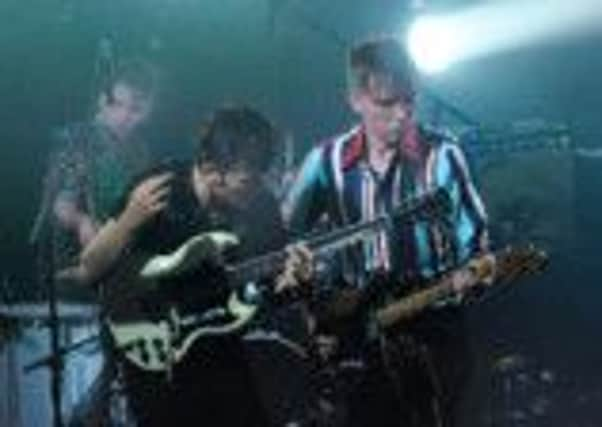Andrew Eaton-Lewis: Why I’m backing independence


I’m a professional arts journalist, a working musician, and already firmly committed to voting Yes this year, but my reasons have little to do with my job or my opinions about culture.
What won me over was the political and economic case – that Scotland will be a better, more empowered neighbour to the rest of the UK if it runs its own affairs, based on a more inclusive, socially responsible philosophy than the horrific neo-liberal dogma peddled by the Tories and largely unchallenged by Labour. I’ve been inspired by the Common Weal movement, and often read the pro-Yes, anti-fearmongering blog Business for Scotland and the irreverent A Thousand Flowers, but am – counter-intuitively – hesitant about signing up to the artist-led National Collective.
Advertisement
Hide AdAdvertisement
Hide AdThere’s an argument that independence would be empowering for Scottish culture, but I’m wary of making it because it’s easy to shoot down for two reasons. First, culture is already devolved. Reading the chapter on culture in the SNP’s White Paper, I found no compelling practical reason to vote Yes. Mostly it is a list of things the government is either doing already, or could still do (in theory) in the event of a No vote. The obvious exception is the replacement of BBC Scotland with a new broadcasting service, SBS, which holds no strong appeal for me, given the BBC’s global reputation (although I am happy to be proved wrong).
Secondly, Scottish culture is looking fairly empowered already. Our national theatre and ballet companies, and many of our festivals, are world-class, and we have far more internationally respected writers, musicians, visual artists, performers and filmmakers than you might reasonably expect from a country this size. The SNP may be hoping this year’s orgy of culture (see preview, opposite) will help boost the chances of a Yes vote, but it could just as easily be seen as evidence of culture flourishing under devolution, and that what isn’t broken doesn’t need fixed.
I became a full-time arts journalist in 1999, the same year the Scottish Parliament was established. I feel privileged to have worked in this profession during an exciting time for Scottish culture, and have often wondered how much credit devolution should take for it. The conclusion I’ve tended to come to is that it’s had more to do with technology. An early, vivid memory is of interviewing Craig Armstrong as he created the music for Moulin Rouge, and marvelling at the sight of a major Hollywood movie being scored from a tiny studio in Glasgow. I’ve asked bands like Franz Ferdinand why it is increasingly possible to build a career without moving to London. The most frequent answer? Cheap air fares. Confidence is a factor, I’m sure, but that’s a nebulous concept, and tricky to use to win political arguments.
What builds creative careers, to a large extent, is networking, and technology has revolutionised networking since 1999, in all sorts of ways. If you can build productive international relationships by Skype, email or LinkedIn, Facebook and Twitter, then culture can flourish in Glasgow and Edinburgh – or Anstruther, or Orkney, or Eigg – just as well as it can in London.
That said, the SNP demonstrates a better understanding of why artists do what they do, and how to help them do it, than any other major party in the UK. Who else is saying things like: “This Government does not measure the worth of culture and heritage solely in money – we value culture and heritage precisely because they embody our heart and soul, our essence”? Certainly not the Tories, who talk of nothing but money, and seem content to spread the lie that artists scraping by on modest resources are somehow diverting money from schools and hospitals, while they themselves systematically dismantle the entire welfare state and destroy people’s lives.
So in a way I’m voting Yes twice this September. As an artist and arts journalist, I’ll be voting based on instinct, hope and empathy, but not – if I’m honest with myself – anything much more solid than that. And, as a citizen and human being, I’ll be voting for what I believe is a fairer, more progressive way of running a small country.